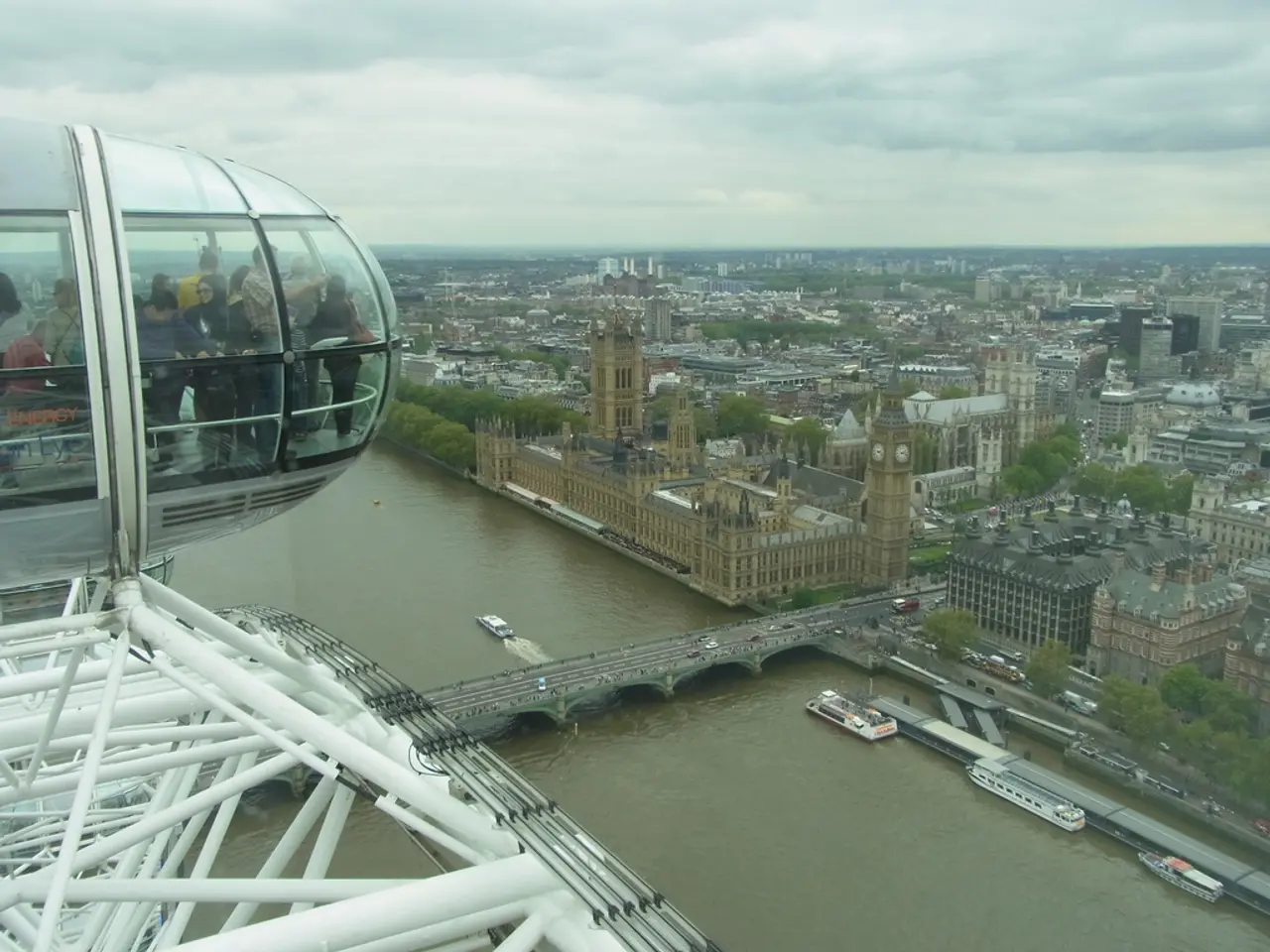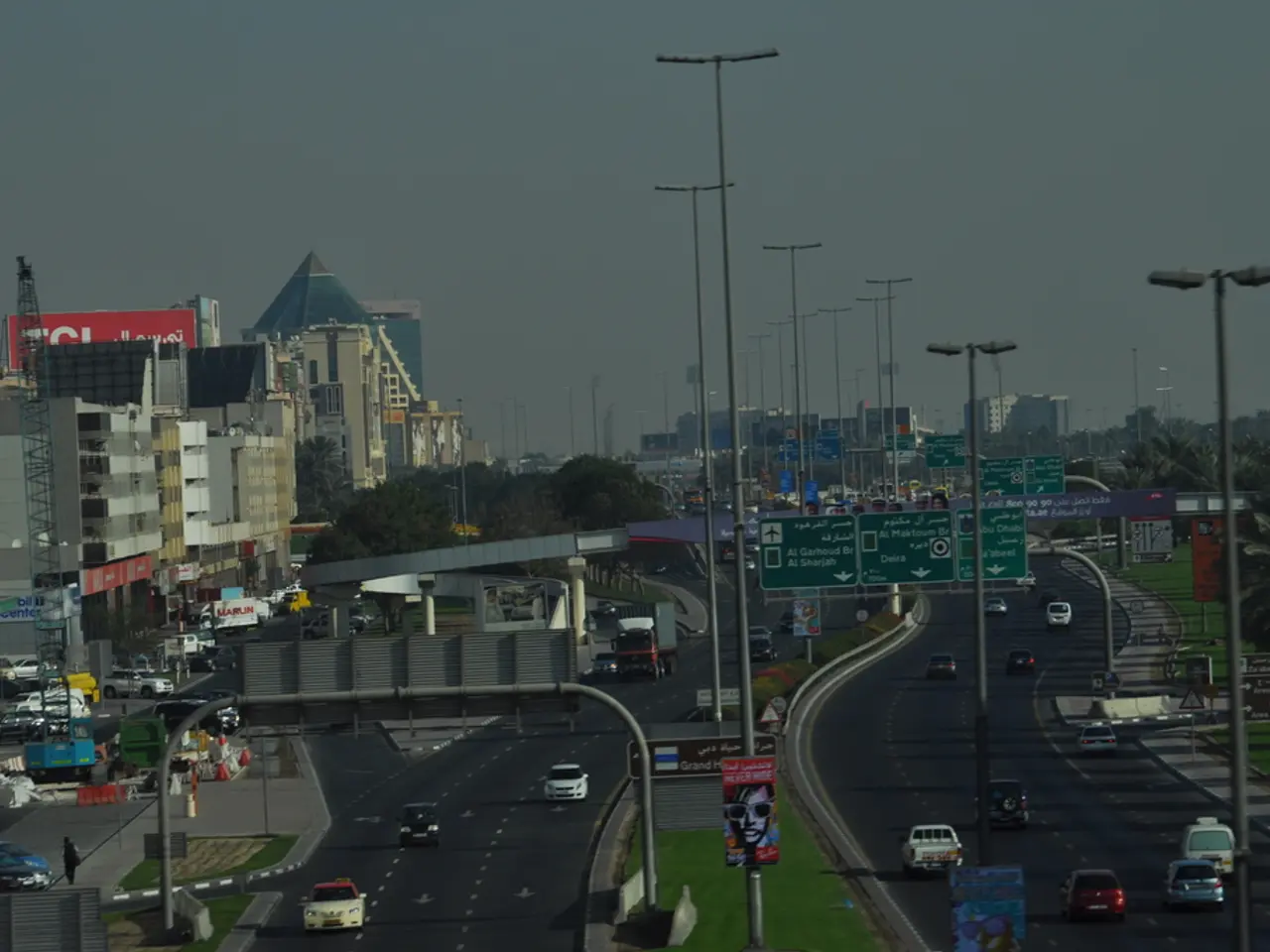"UK Pressed to Immediately Grant Recognition to Palestine as a Sovereign State"
The UK is facing a significant political and legal decision regarding the recognition of Palestine, a move that could have far-reaching implications for international relations and domestic politics.
In a recent development, Lord David Wolfson, the Shadow Attorney General, has criticised the government's argument that the recognition of a foreign state is solely a political issue. This criticism comes as British officials work diligently on the "nuts and bolts" of judging how Israel would meet the criteria set out by Labour Party leader Keir Starmer.
Legally, the recognition of Palestine would not violate international law, as affirmed by recent analyses following the UN General Assembly's vote granting Palestine non-member observer state status in 2012. However, the political implications are complex. There is rising diplomatic momentum, with multiple countries, including the UK, contemplating recognition partly in response to widespread public disapproval over Israel's conduct in Gaza.
Prime Minister Keir Starmer's conditions for recognition suggest a cautious approach, balancing international diplomatic relations with internal political dynamics and public opinion. The delay in recognition reflects an attempt to maintain constructive dialogue and peace prospects while responding to demands from the UK public and the international community disquieted by the humanitarian situation in Gaza.
Sir Vincent Fean, a former consul general to East Jerusalem, is among those urging the Prime Minister to drop conditions for the recognition of Palestine. Edmund Fitton-Brown, a former diplomat, suggests the United Nations General Assembly (UNGA) as the "least problematic forum for the upgrade."
Business Minister Gareth Thomas frames recognition of Palestine as a political judgment. A new YouGov poll found that 51% of Britons consider Israel's actions unjustified, while only 21% believe they are justified. The Labour government's foreign policy will be guided by international law, indicating a possible shift in the UK's stance on the Israeli-Palestinian conflict.
The decision to recognise Palestine is likely to be made by the Foreign Commonwealth and Development Office before UNGA, where many heads of state or government, including Keir Starmer, French President Emmanuel Macron, and Mahmoud Abbas from the Palestinian Authority, are expected to be present in September.
However, the move is not without opposition. The families of British hostages in Gaza fear that recognition would give Hamas an incentive to prolong the conflict. The Anglican Bishop of Southwark, Christopher Chessun, has criticised the use of recognition as a "bargaining chip" and urged the government to move ahead with recognition of Palestine regardless of the facts on the ground.
The US might allow Mahmoud Abbas to enter, which could further pressure the UK to make a decision. As the UK stands on the brink of a historic decision, the political and legal implications of recognising Palestine without delay are becoming increasingly apparent, signalling the UK's stance on the Israeli-Palestinian conflict and international law.
[1] United Nations General Assembly, "Palestine: non-member observer state," 29 November 2012, https://www.un.org/en/ga/palestine/ [2] YouGov, "Majority of Britons believe Israel's actions in Gaza are unjustified," 27 July 2021, https://yougov.co.uk/topics/international/articles-reports/2021/07/27/majority-britons-believe-israels-actions-gaza-unjustified
- The UK's potential recognition of Palestine is a topic of significant discussion in the realm of Middle East news, given its potential impact on international relations and domestic politics.
- Lord David Wolfson, the Shadow Attorney General, questioned the government's stance that recognition of a foreign state is purely a political issue, amidst ongoing deliberations about Israel's criteria for recognition within the Labour Party.
- The Middle East, particularly the Israel-Yemen region, is being closely watched as multiple countries, including the UK, consider recognising Palestine, partly due to the widespread public disapproval of Israel's actions in Gaza.
- The US, as well as key figures like French President Emmanuel Macron and Mahmoud Abbas from the Palestinian Authority, are anticipated to influence the UK's stance on Palestine at the upcoming UN General Assembly in September, adding to the political pressure.






